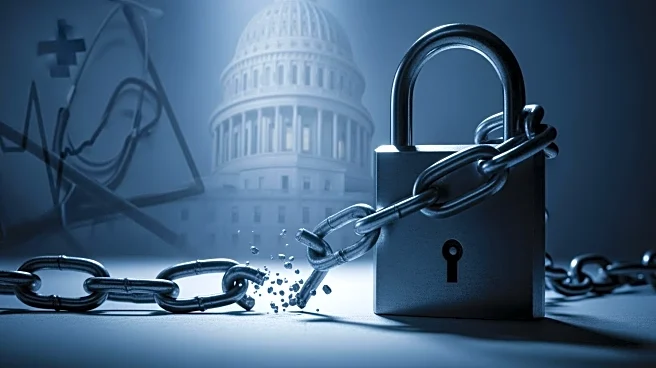What's Happening?
The U.S. Senate convened for a weekend session to address the ongoing government shutdown, now in its 39th day. Senate Majority Leader John Thune's hopes for a quick resolution were dashed as President
Trump expressed reluctance to compromise with Democrats seeking a one-year extension of Affordable Care Act tax credits. The shutdown has led to unpaid federal workers, flight cancellations, and delayed SNAP benefits. Republican senators echoed Trump's criticism of the ACA, while Democrats, led by Sen. Jeanne Shaheen, are negotiating a proposal to end the shutdown in exchange for a future vote on healthcare subsidies. The proposal involves extending government funding until December or January, with a promise of a healthcare vote.
Why It's Important?
The prolonged shutdown is affecting millions of Americans, with significant economic and social repercussions. The debate over healthcare subsidies is central to the negotiations, as the expiration of ACA tax credits could lead to increased premiums for those enrolled in ACA exchanges. The outcome of these negotiations will impact healthcare affordability and access for many Americans. The shutdown also highlights the deep political divisions in Congress, affecting public trust in government and its ability to function effectively.
What's Next?
Senate leaders are considering a bipartisan package to end the shutdown, with potential test votes in the coming days. Democrats face a choice between continuing to fight for extended subsidies or accepting a temporary resolution with a promise of future negotiations. The resolution of the shutdown will depend on whether both parties can reach a compromise on healthcare and government funding.
Beyond the Headlines
The shutdown underscores the challenges of governance in a polarized political environment. It raises questions about the effectiveness of the filibuster and the role of bipartisan cooperation in resolving critical issues. The situation may prompt discussions on legislative reforms to prevent future shutdowns and ensure government stability.









